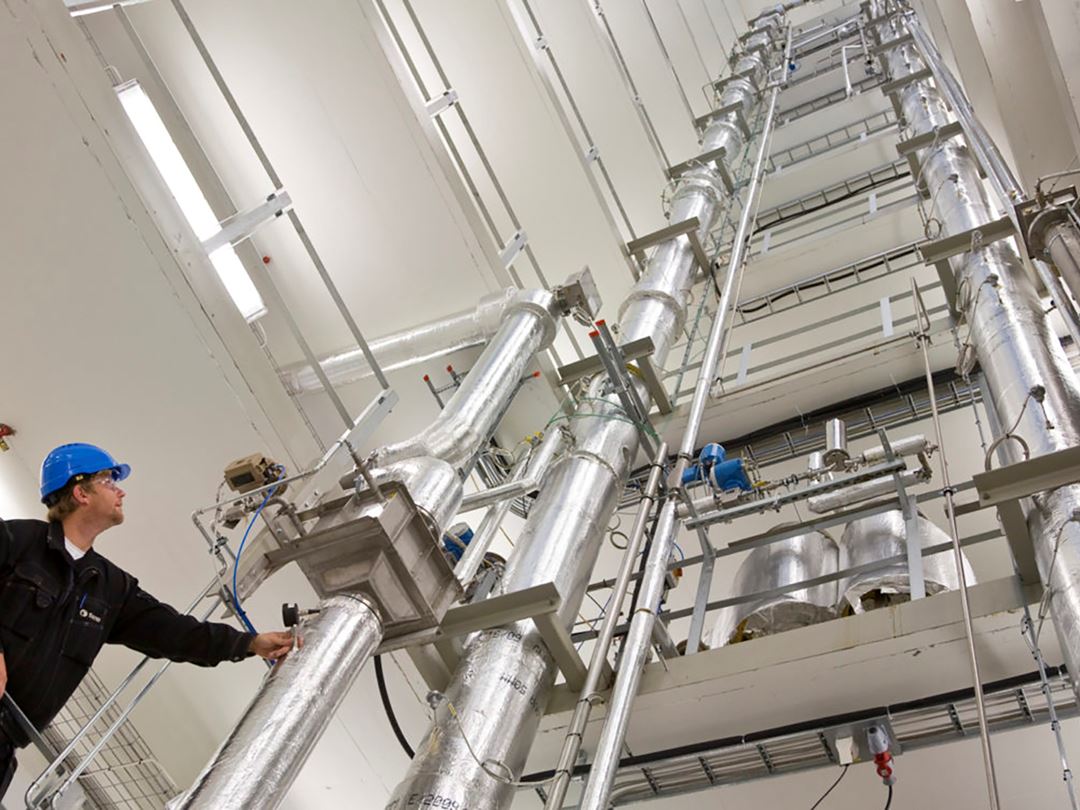By optimizing and qualifying an open-access CESAR1 solvent and associated CO2 capture process, AURORA will offer a highly competitive solution compared to the conventional MEA-based benchmark. Full CCUS chain assessments will be carried out by taking a holistic approach that considers large-scale application in different industrial clusters.
Rapid up-scaling and deployment of more cost-efficient and sustainable carbon capture solutions is needed to reduce the emissions of CO2-intensive industries. Solvent-based carbon capture is an important technology that can be readily adopted to many emission sources. Such technology can achieve high capture rates and deliver CO2 at high purity with a relatively low energy demand.
In AURORA the open and non-proprietary CESAR1 solvent technology will be optimised and qualified for commercial deployment. The technology will be demonstrated at TRL7-8 for three CO2 intensive industries: refining, cement, and materials recycling, for which there are few other options to achieve climate neutrality.
The partners will demonstrate negligible environmental impact (emissions being a potential issue for solvent technology), capture rates at 98%, and capture costs reduced by at least 47% compared to a benchmark process with the MEA solvent. This will be achieved due to the following innovations: 1) Holistic optimisation of solvent composition, process design, emission monitoring and control, and solvent management, 2) Validated models for use in commercial process simulators 3) enhanced waste heat integration with carbon capture for reduced external heat demand and operational costs 4) Improved and integrated advanced control system for reduced OPEX and optimised performances.
These innovations will be integrated in four optimised capture processes and various aspects will be demonstrated in pilots of various size and complexity. The partners will ensure transferability of results to other CO2 intensive industries thanks to the large variations in CO2 source and developed clusters addressed in the project and a strong stakeholder participation. The project will also do full CCUS chain assessments for its end-users. It is noteworthy that the end-users are situated in two different regions of Europe offering different conditions for the implementation of CCUS value chains.
Partners:
- SINTEF (coordinator) (Norway)
- The Norwegian University og Science and Technology, NTNU (Norway)
- University of Cambridge (UK)
- Technology Centre Mongstad (Norway)
- La Sapienza University of Rome (Italy)
- TotalEnergies (France)
- Aker Carbon Capture (Norway)
- Motor Oil (Greece)
- Heracles General Cement Company (Greece)
- Umicore (Belgium)
- Cybernetica (Norway)
- Euroquality (France)
Project Duration: January 2023 - June 2026
Project Budget: 16 258 397 Euro
Funding Source: Horizon Europe, Innovation Action
This project has received funding from the European Union’s HORIZON EUROPE research and innovation programme under grant agreement No 101096521.


